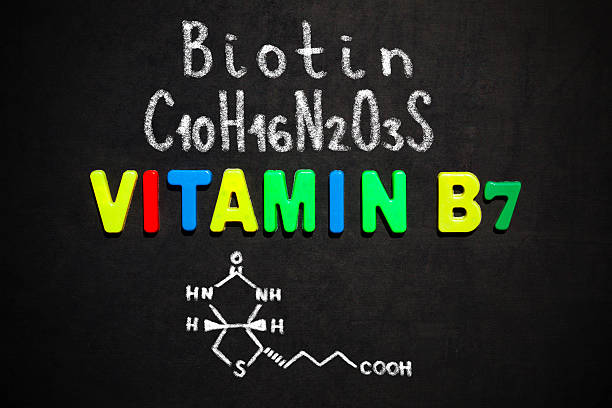Can I take biotin if I have high blood pressure?
Elevated plasma homocysteine levels are associated with higher systolic blood pressure, according to July 2017 research published by Scientific Reports, and lowering them might have an important role in managing blood pressure. Biotin is considered safe.
With the long list of hypertension drugs available to treat this all-too-common disease, you might be surprised to hear that an everyday vitamin — one of the B vitamins, no less — could play a role in controlling high blood pressure, which is a growing health concern. Here's what we know.
Blood Pressure Fundamentals
High blood pressure, also known as hypertension, is a condition in which the force of blood pressure against blood vessel walls is persistently high over time. This can cause damage to those blood vessels and increase your risk for heart attack or stroke, reports the American Heart Association (AHA).
Nearly half of all U.S. adults have high blood pressure, according to the AHA. High blood pressure is known as a silent killer because it has no symptoms at first. That's why having your blood pressure checked regularly is so important.
Blood pressure is measured using two numbers: the systolic reading (the first or upper number), which reflects the pressure during each heartbeat, and the diastolic reading (the second or lower number), which is the pressure between heartbeats, explains AHA. High blood pressure would be a systolic measurement of 130 or higher or a diastolic measurement of 80 or higher, whereas a normal blood pressure reading would be below 120/80 millimeters of mercury.
Some risk factors for high blood pressure — such as family history, race or ethnicity, age and gender — can't be changed, but as AHA points out, many others are in your control. For instance:
- If you smoke, quit.
- Maintain a healthy weight.
- Eat plenty of fruits, vegetables, whole grains and low-fat dairy products.
- Limit sodium.
- Eat foods that provide 3,500 to 5,000 milligrams (mg) of dietary potassium every day.
- Limit alcohol to one drink a day for women, two drinks for men.
- Aim for 90 to 150 minutes of physical activity every week.
- Take blood pressure medication, if prescribed.
Biotin and Blood Pressure
Biotin, also known as vitamin B7, is an essential vitamin that supports body processes, including metabolism, gene regulation and cell signaling, explains Shelley Wood, MPH, RDN, a clinical dietitian at the Santa Clara Valley Medical Center in San Jose, California.
Though more research is needed, one study in the May 2019 issue of the Journal of Clinical Biochemistry and Nutrition found an association between taking a low-dose vitamin B supplement and reduced plasma homocysteine levels.
Elevated plasma homocysteine levels are associated with higher systolic blood pressure, according to July 2017 research published by Scientific Reports, and lowering them might have an important role in managing blood pressure.
Biotin is considered safe. There's no evidence that high doses of biotin are toxic for humans, says Woods. "Because biotin is a water-soluble vitamin, generally the excess that is not used by the body is excreted in the urine," she explains. However, before taking any supplement, you should consult with your doctor — ask whether biotin and your high blood pressure medication make a smart combination.
Biotin Risks
However, there is one extremely important consideration to note if you take high doses of biotin. According to the U.S. Food and Drug Administration, this can skew various blood tests, including cardiovascular diagnostic tests and hormone tests, and lead to incorrect results.
What's recommended as an adequate daily intake level for biotin is 30 micrograms a day, according to the National Institutes of Health's Office of Dietary Supplements (ODS), but some supplements contain hundreds of times that amount. "This can lead to inappropriate diagnosis or treatment and can even lead to death," warns Woods. If you take supplemental biotin, mention this to all your doctors, especially before scheduling any lab tests. You may need to come off it temporarily.
Keep in mind that you can get biotin from foods, especially beef liver, whole eggs, salmon, sunflower seeds and sweet potatoes, according to the ODS.






